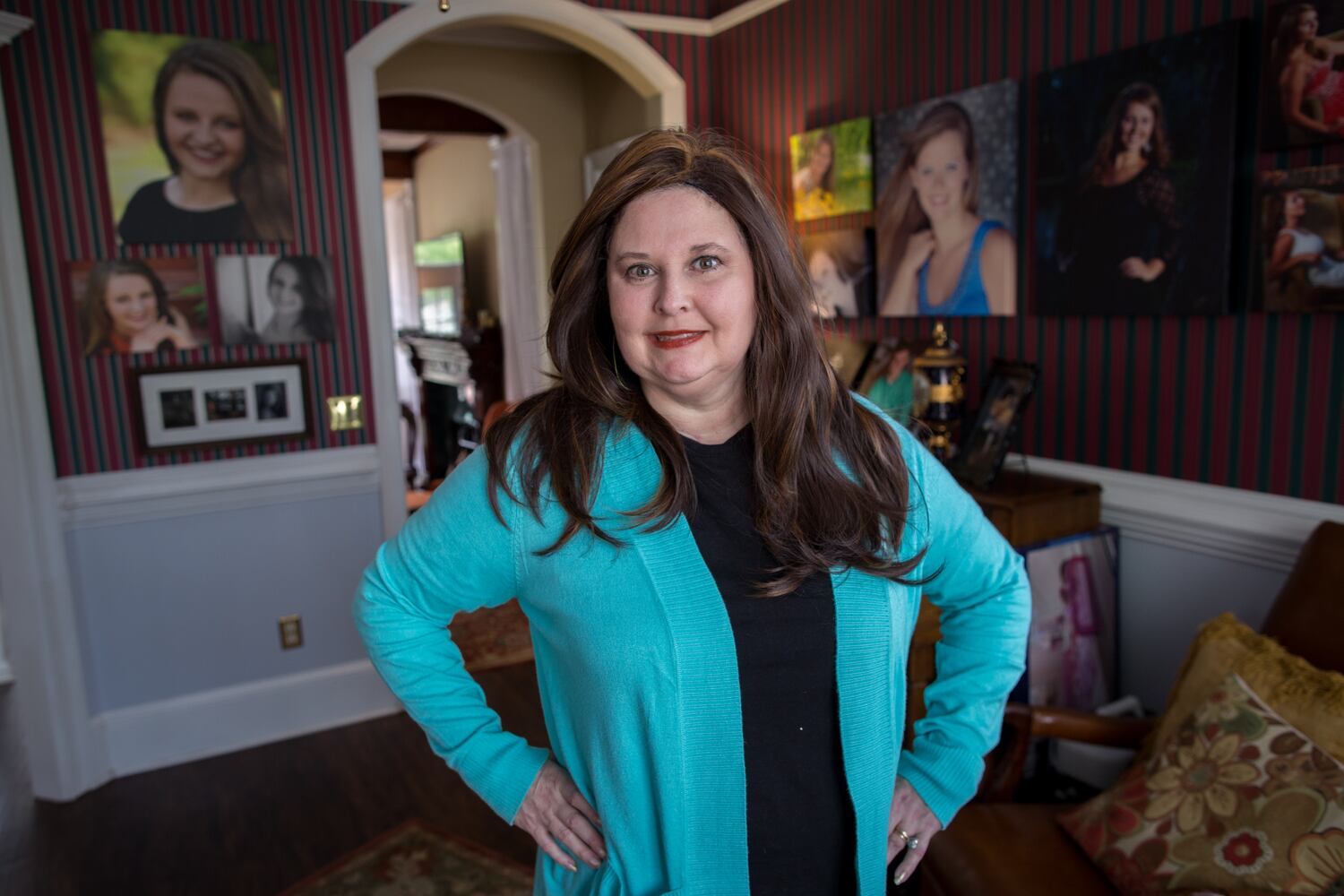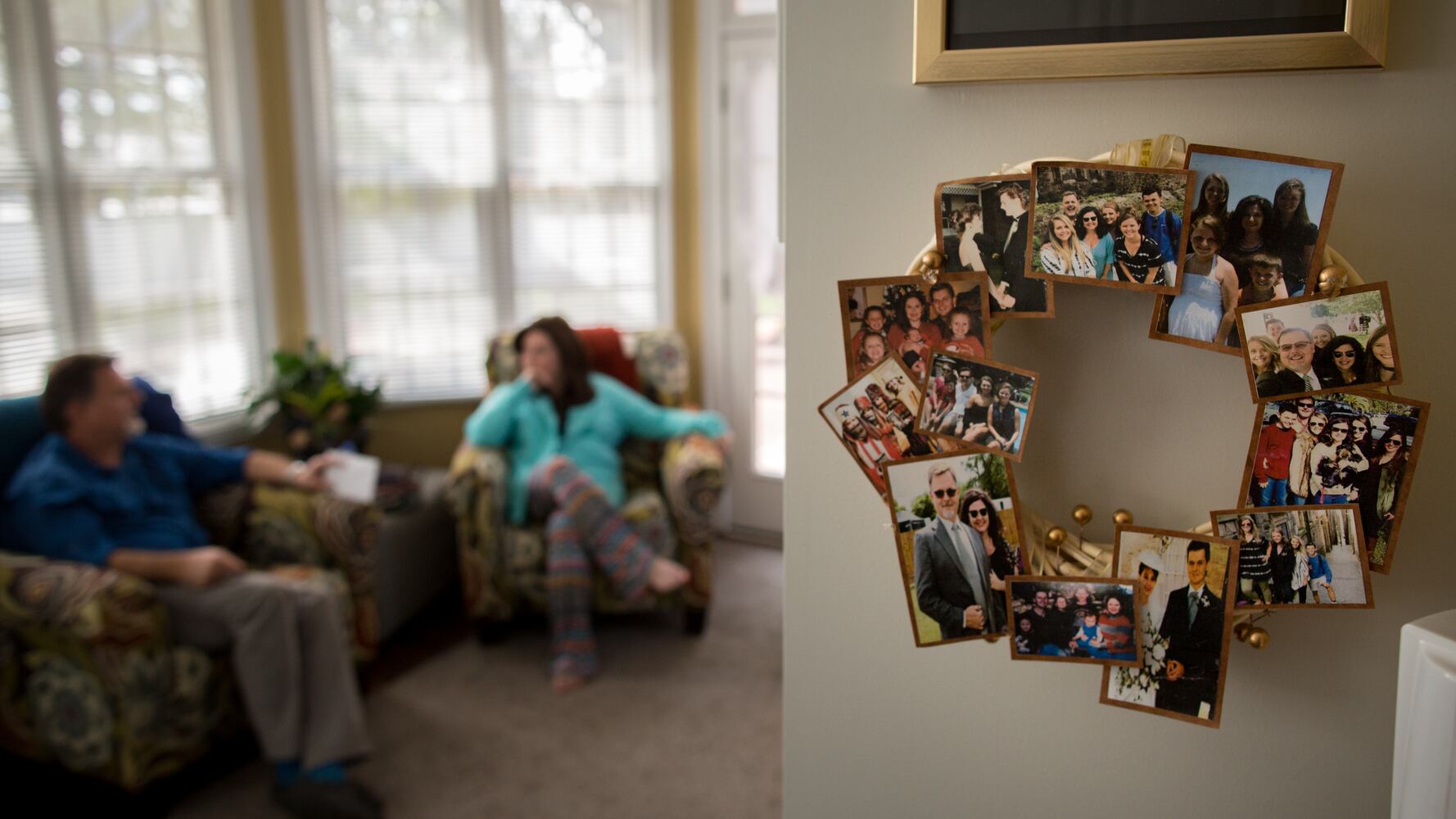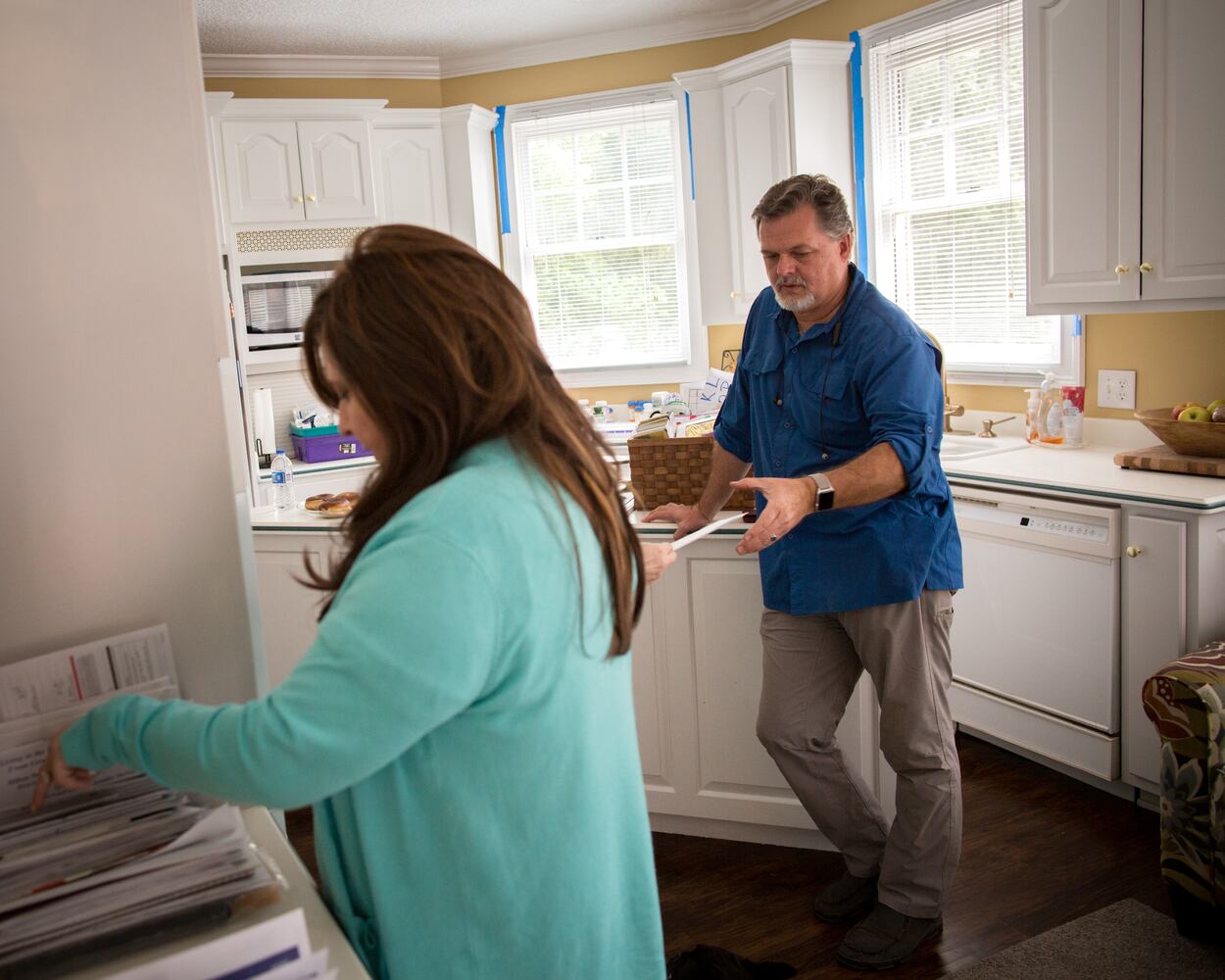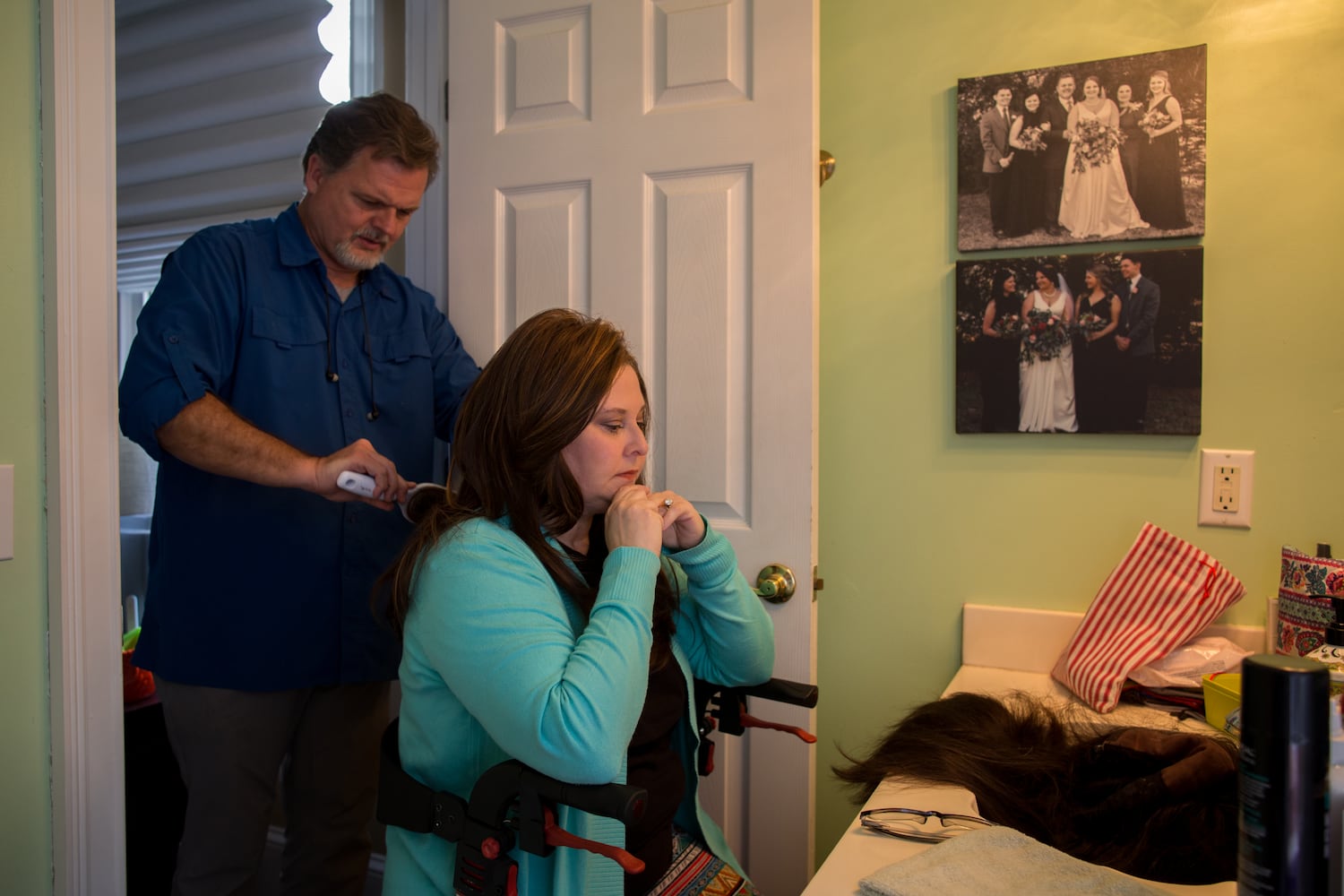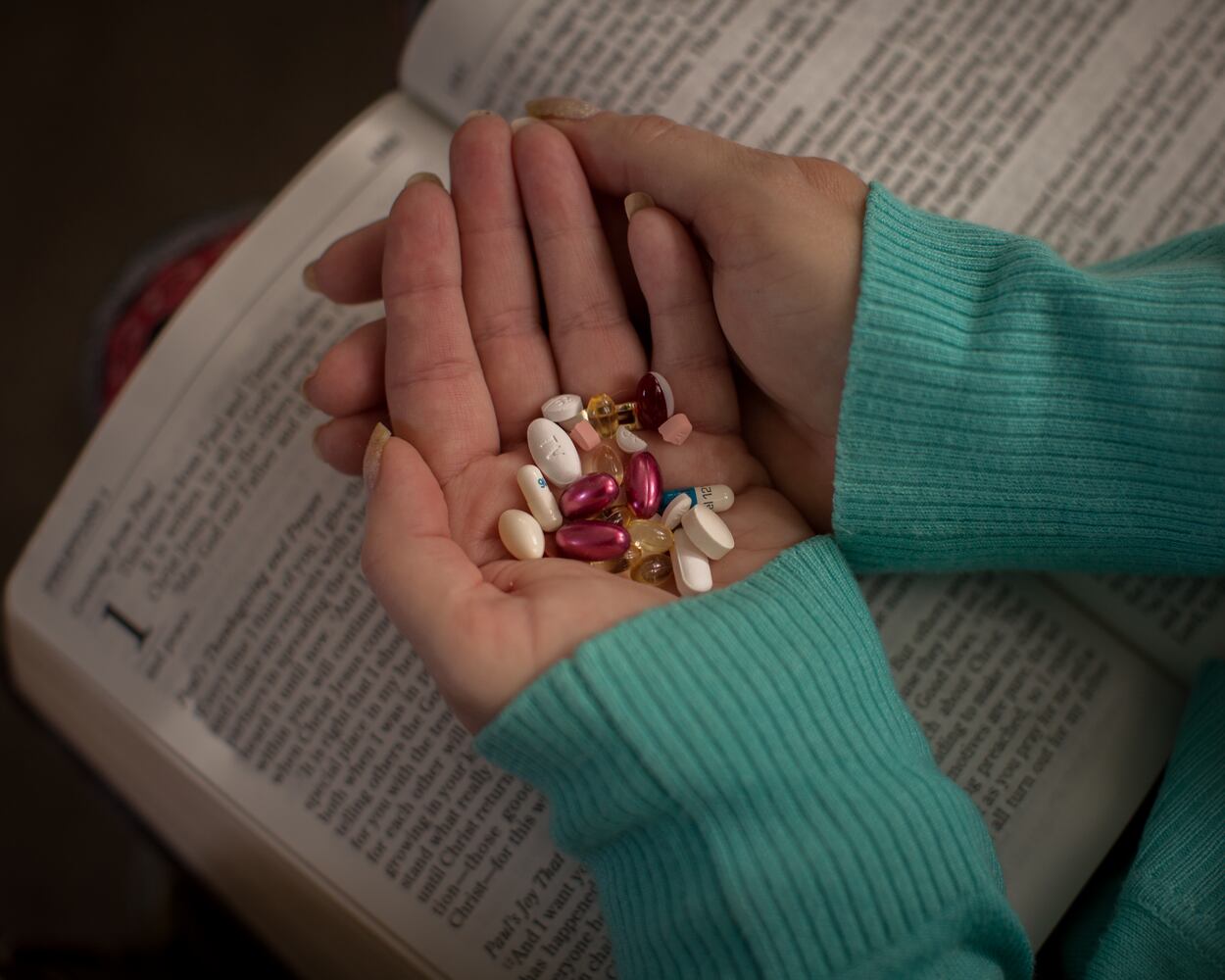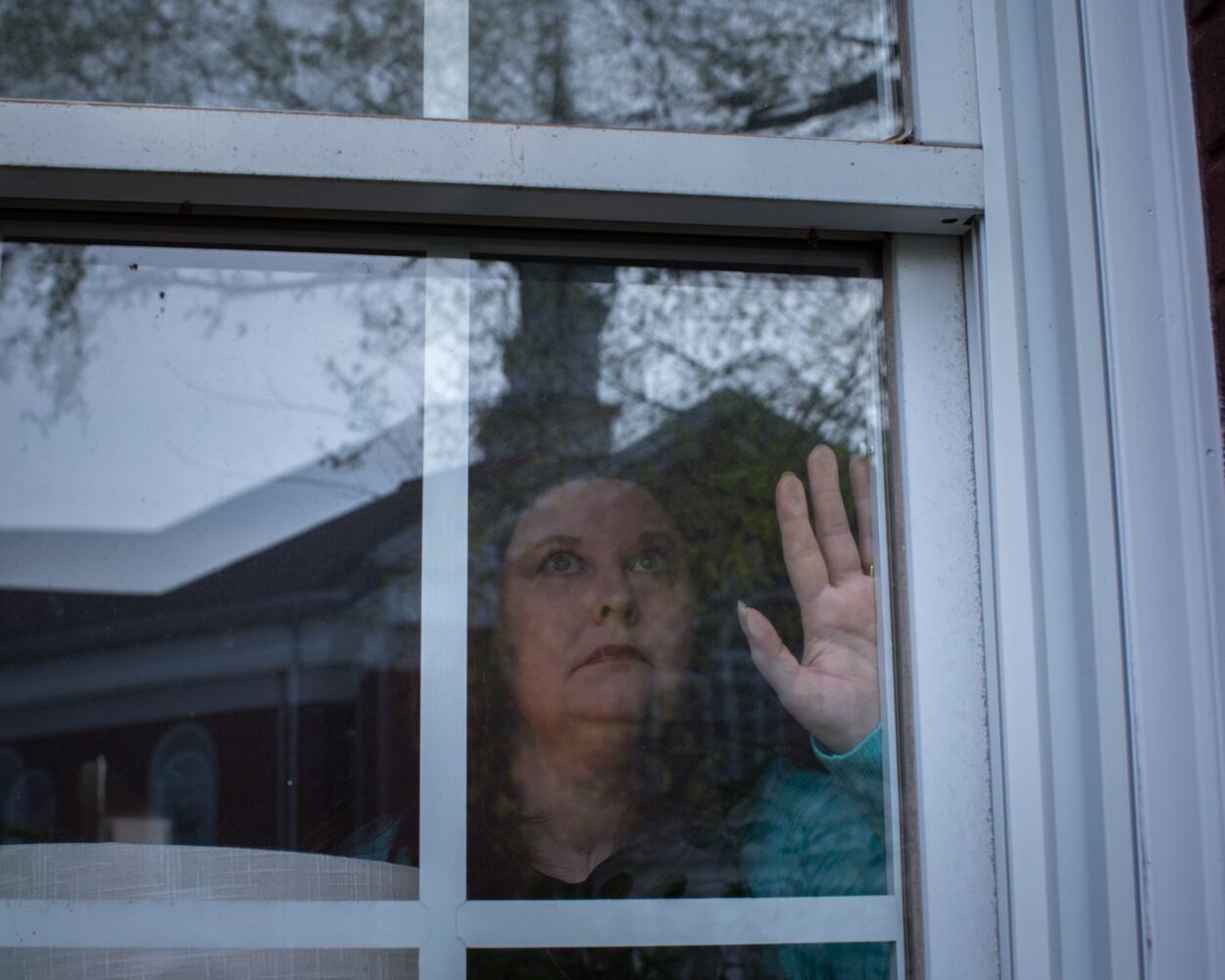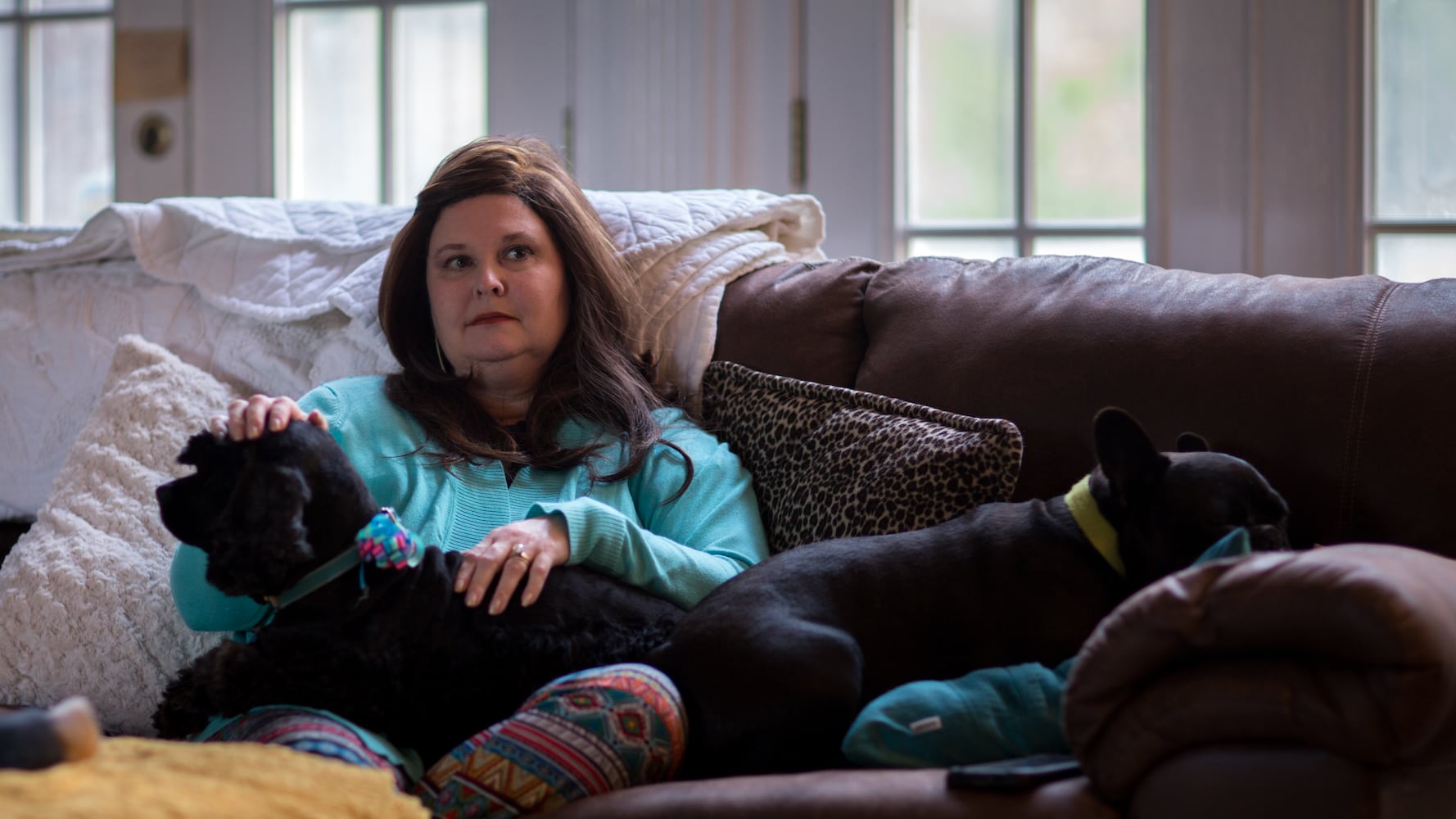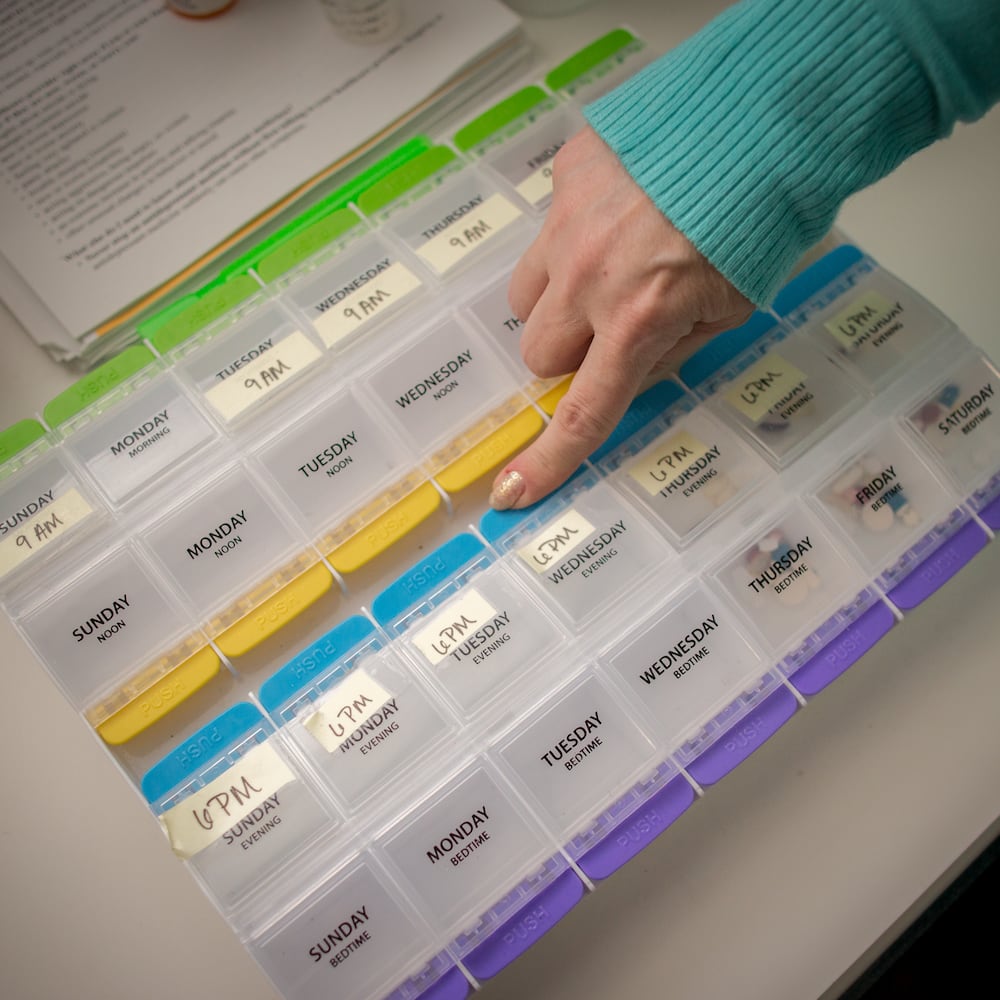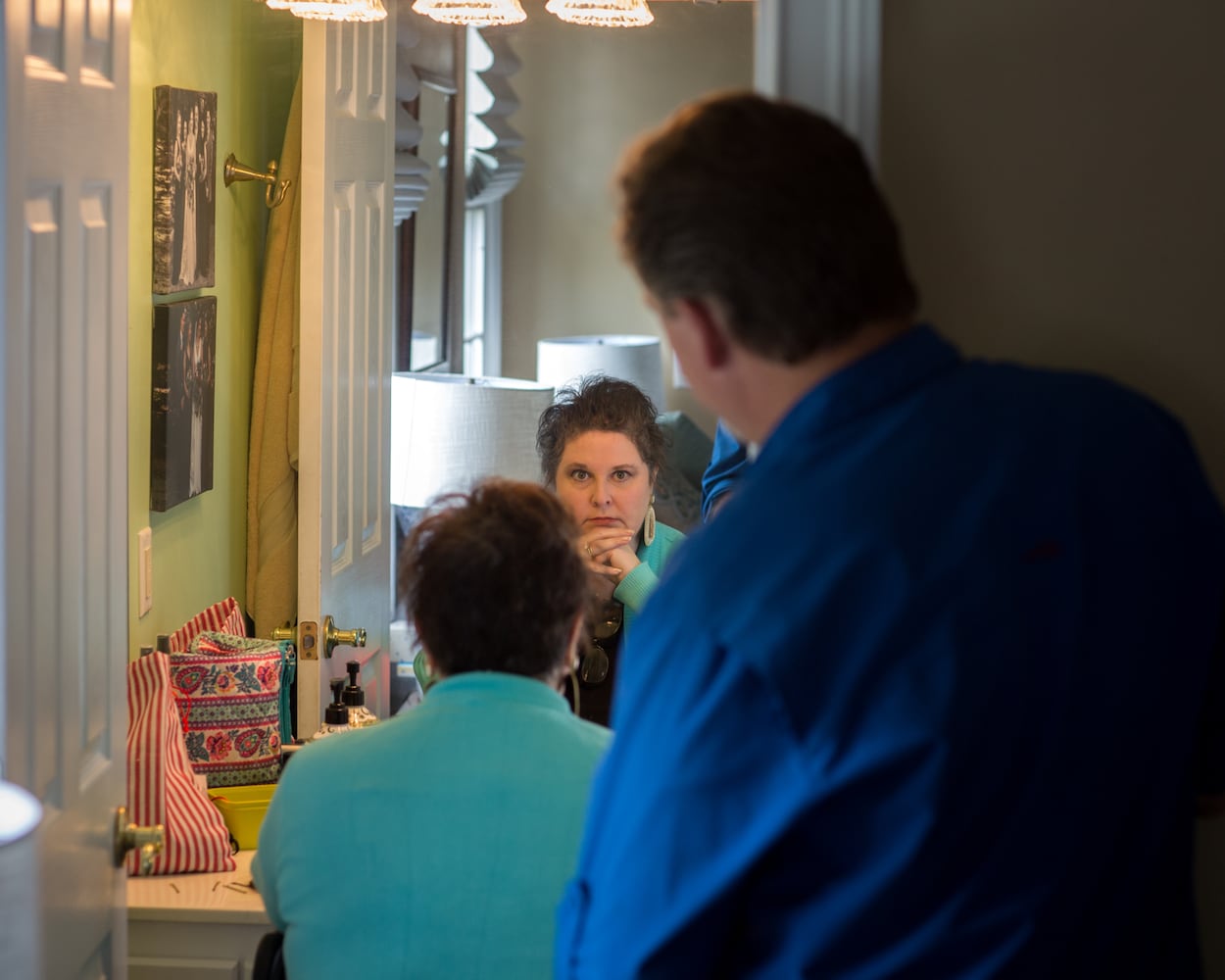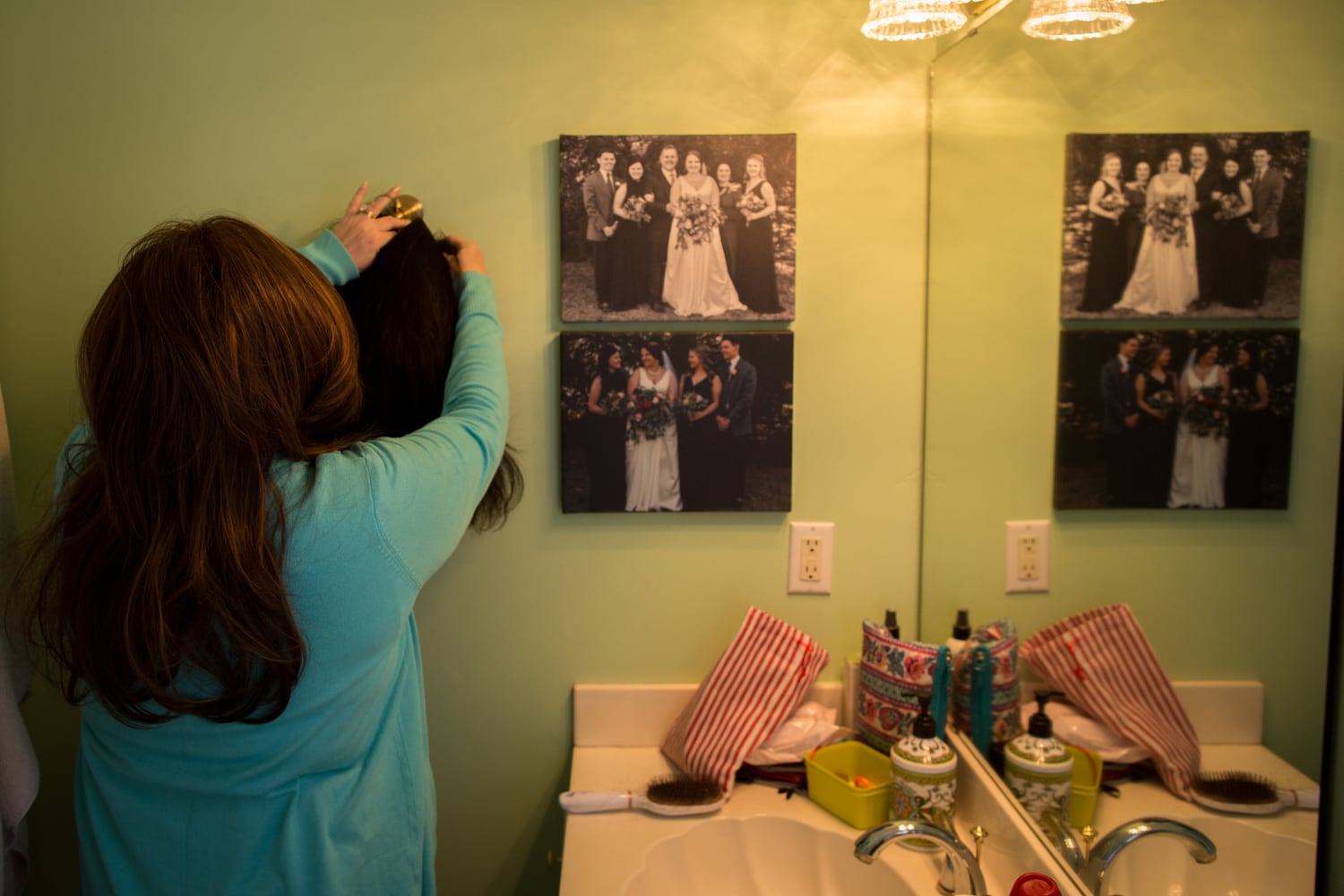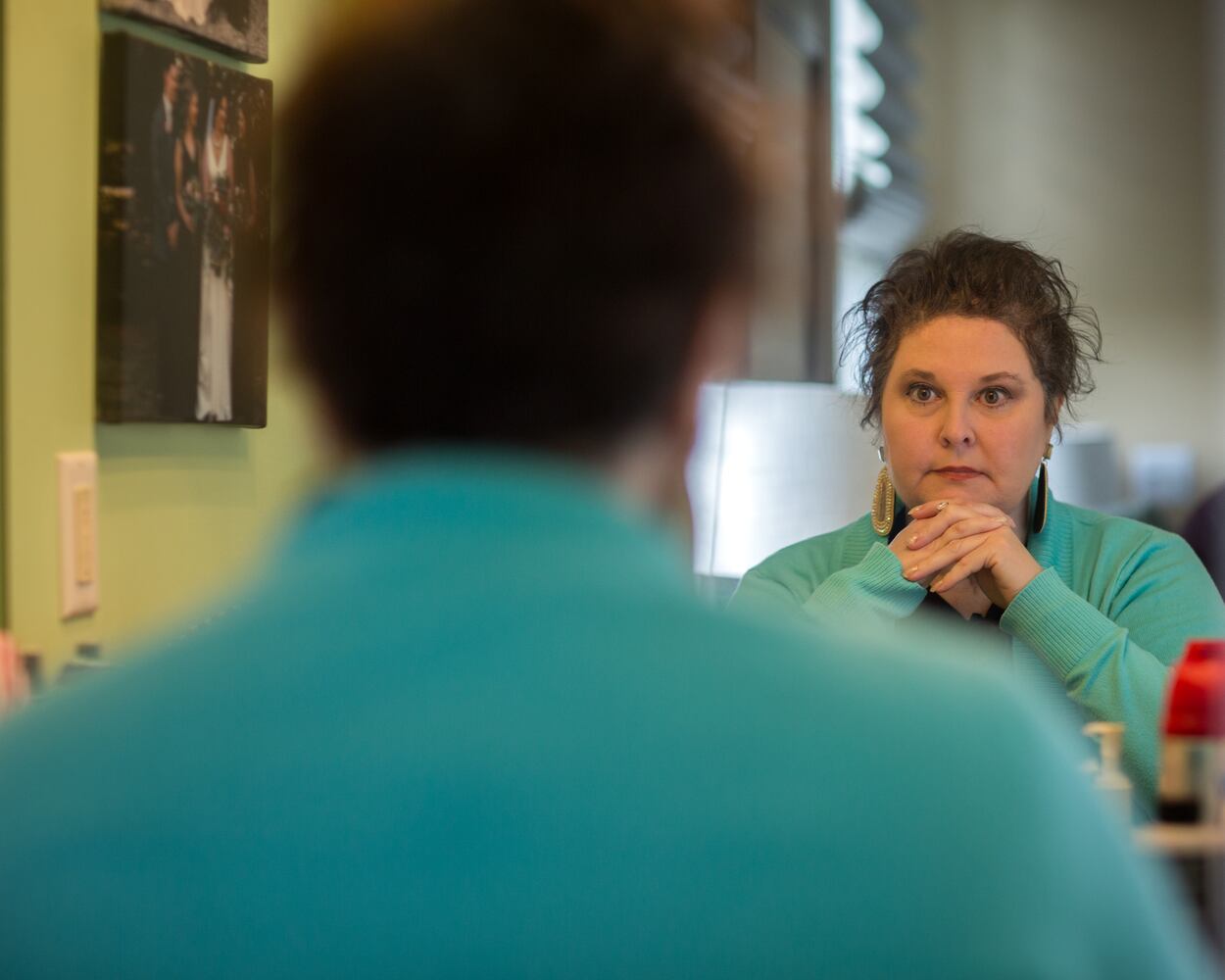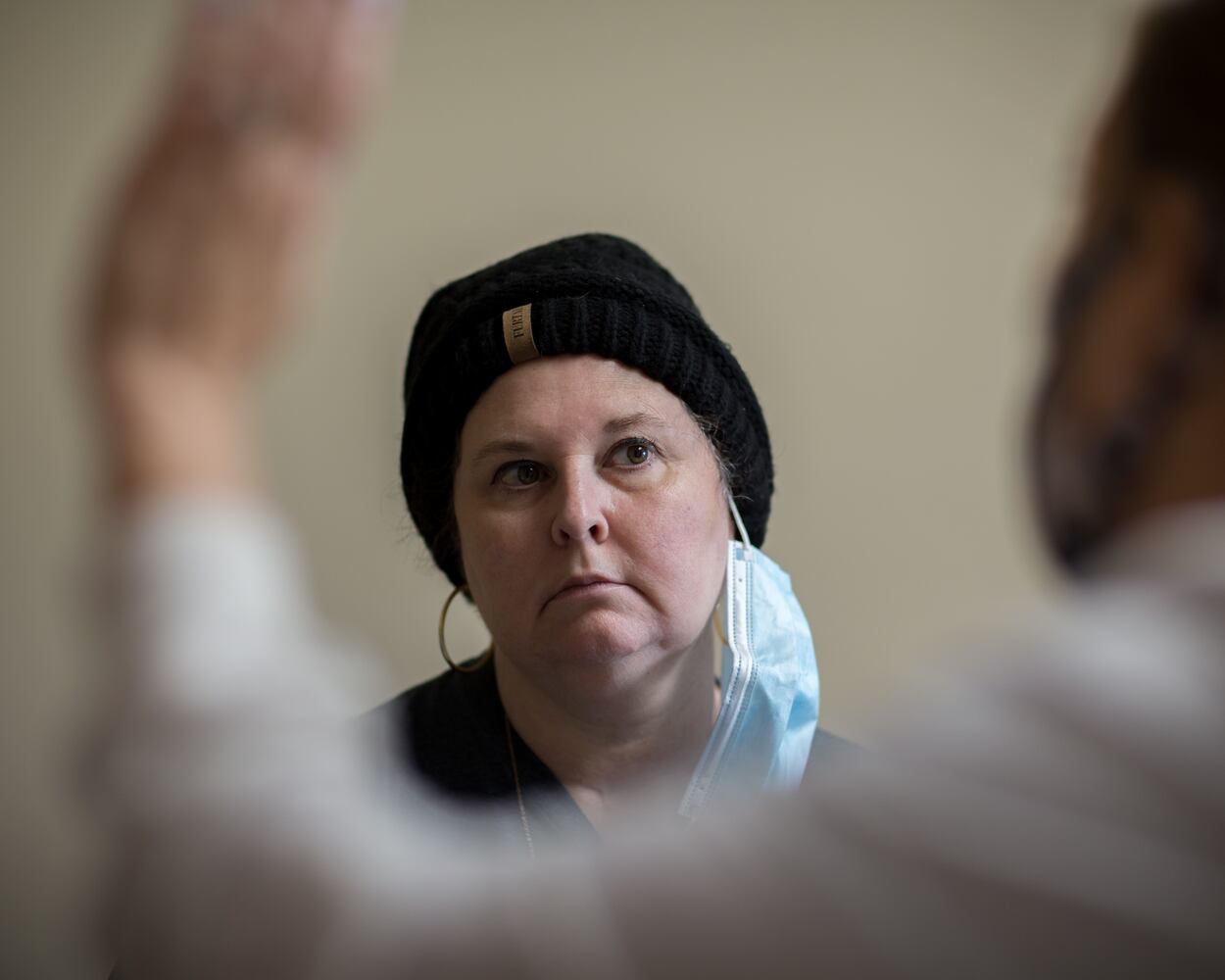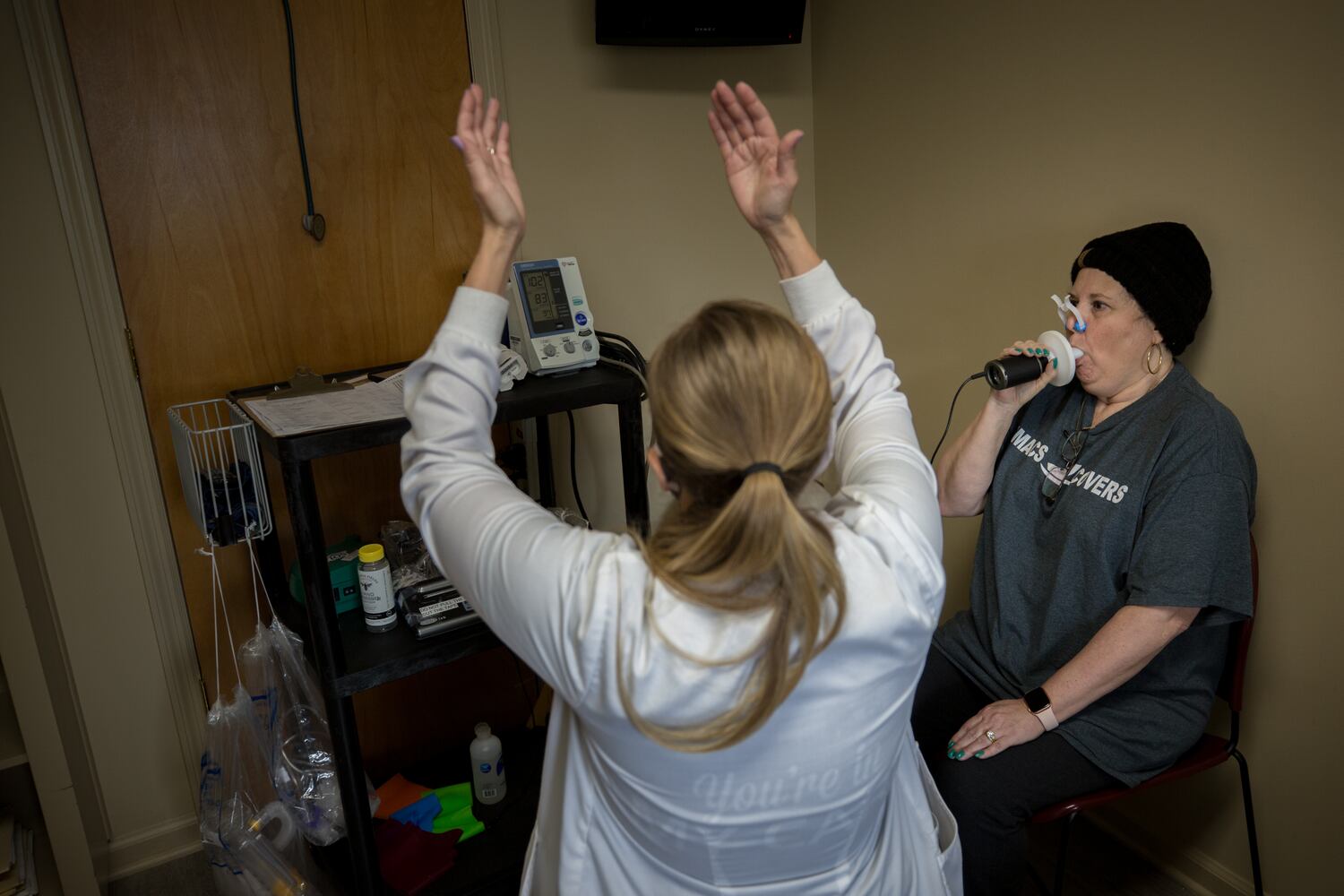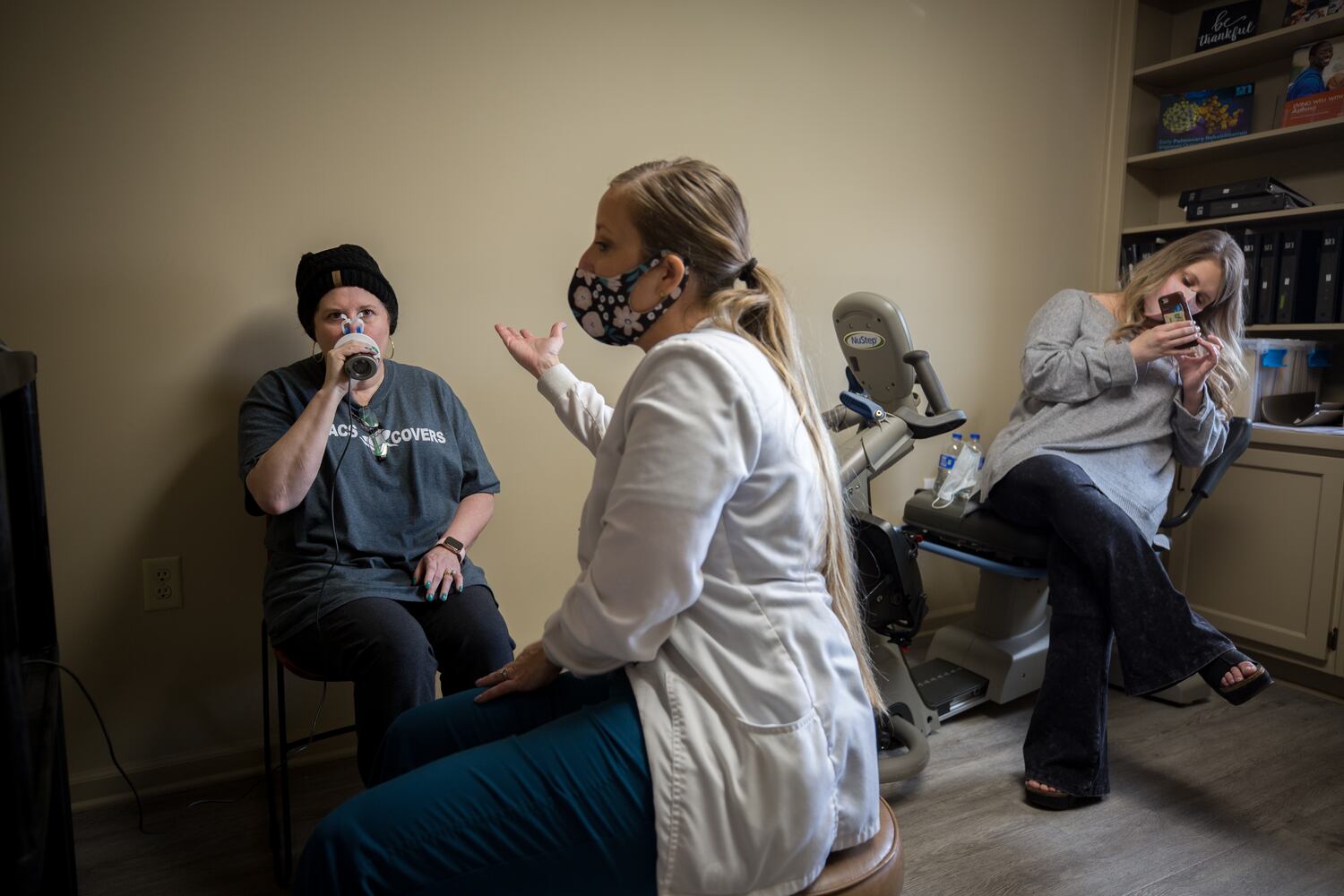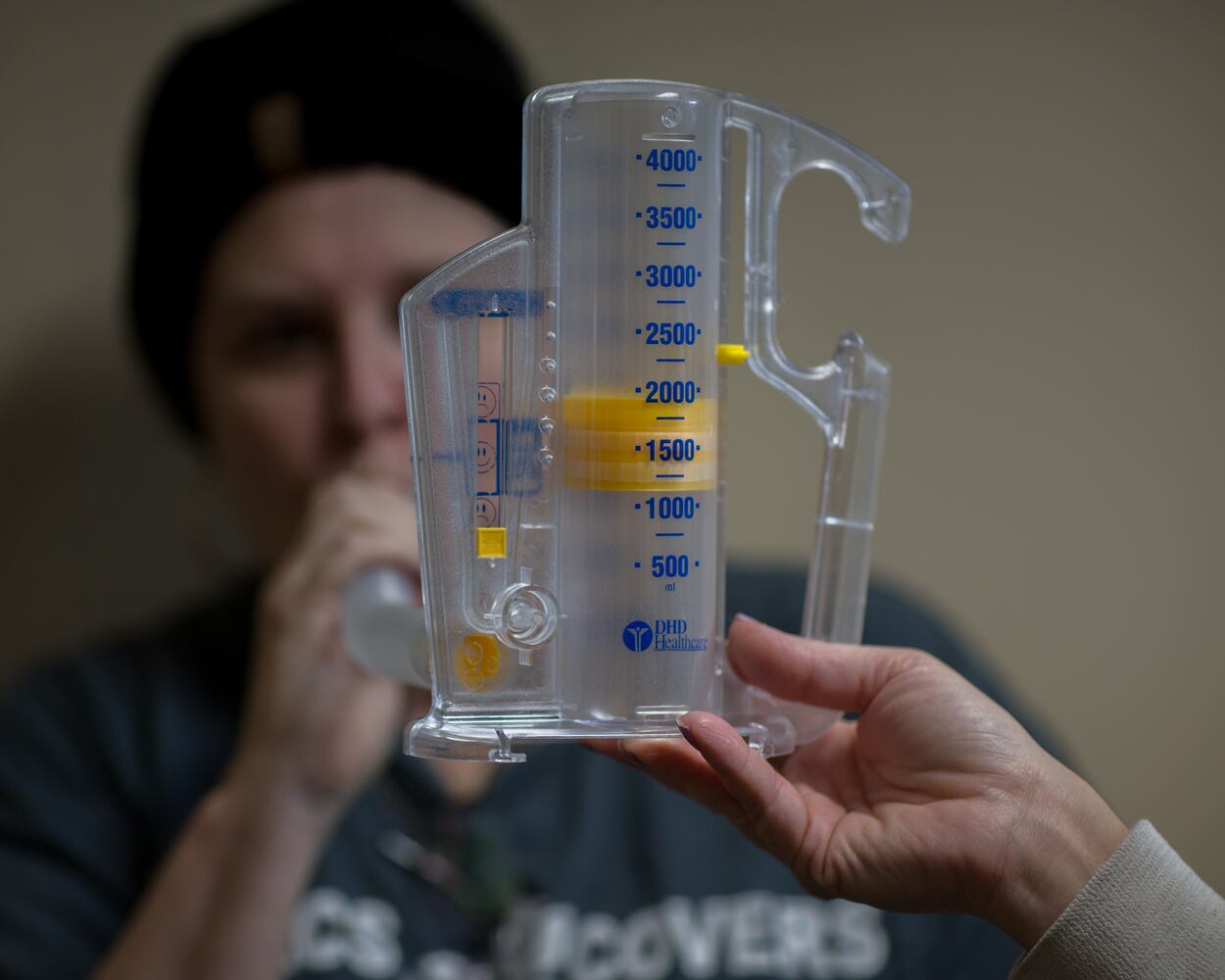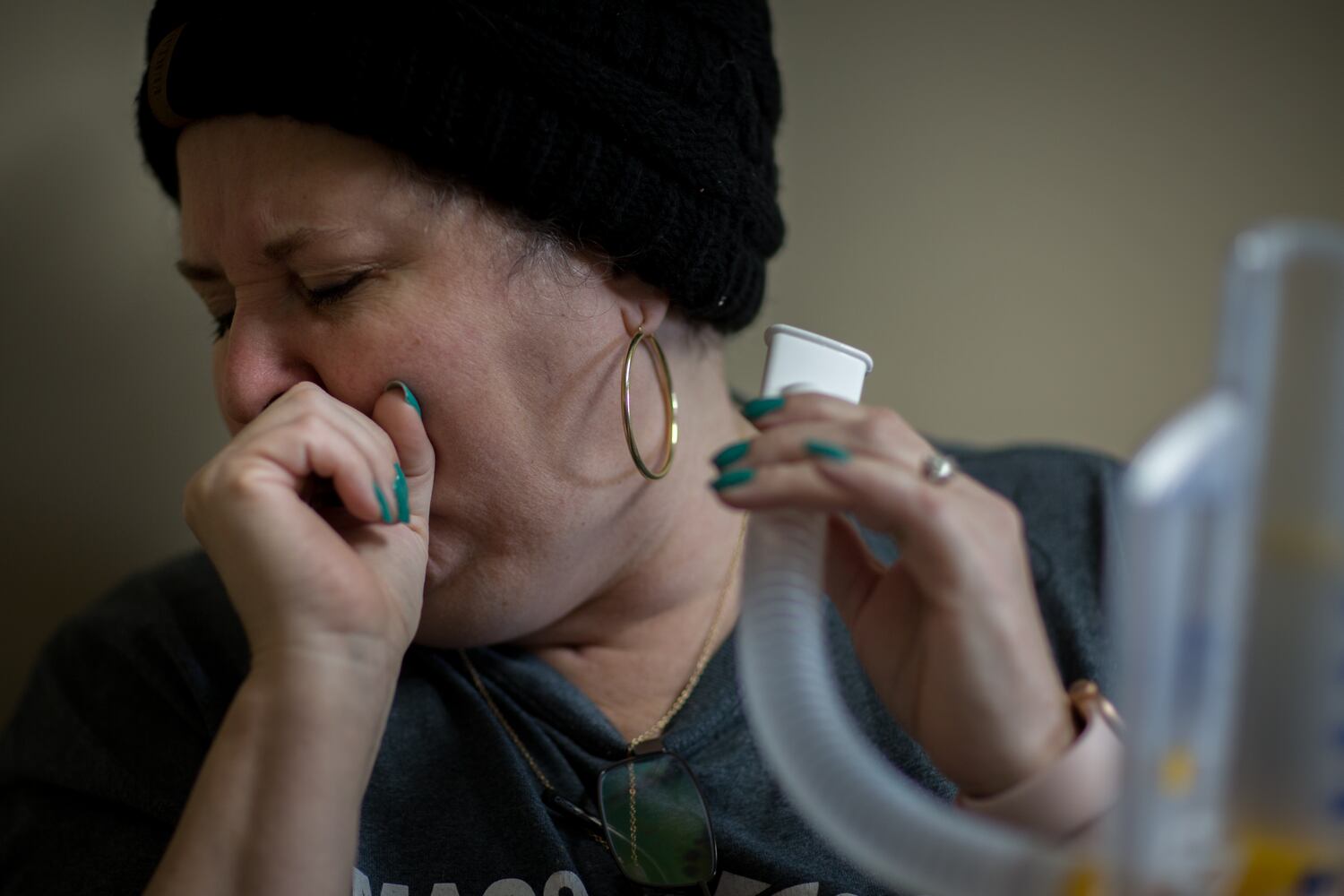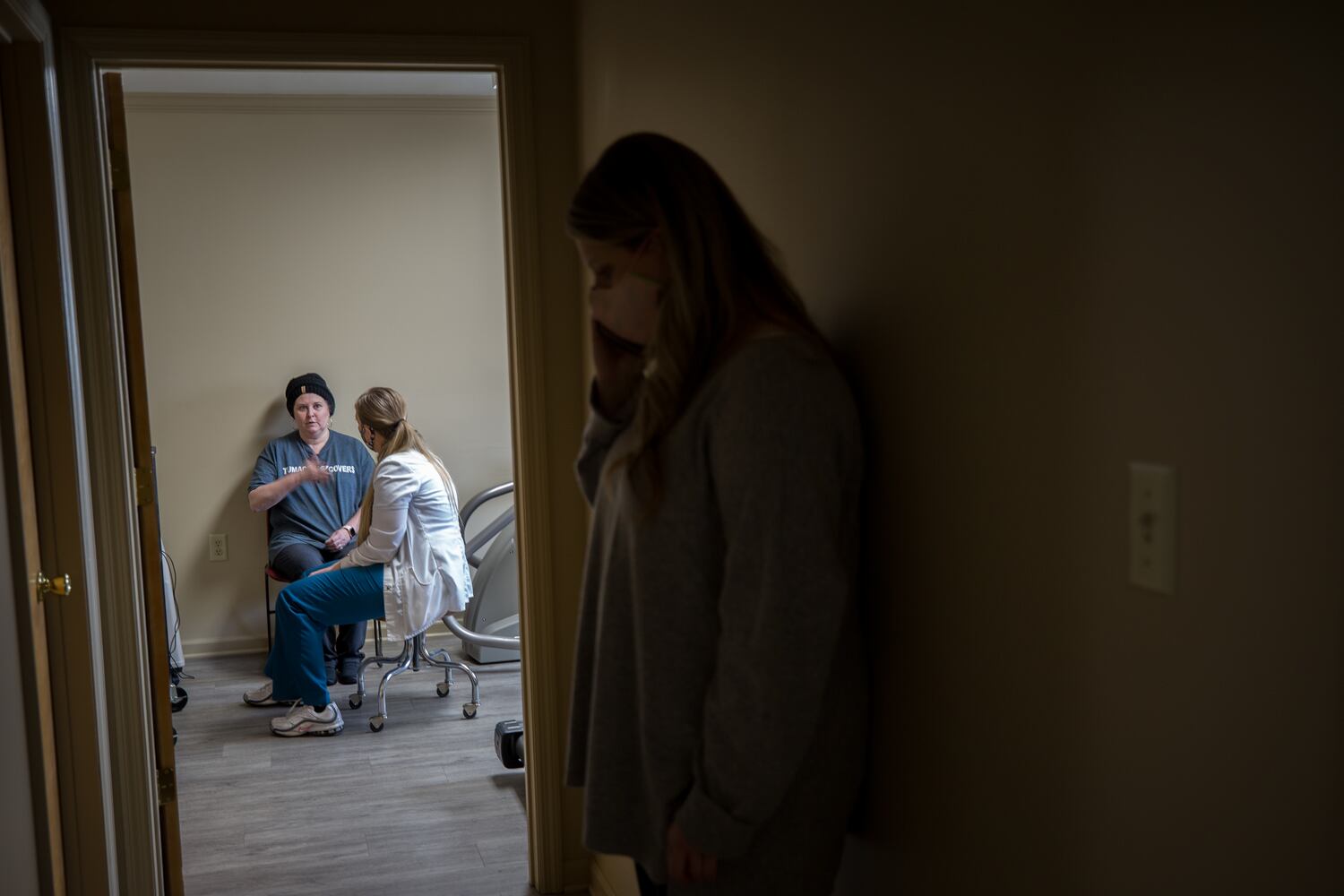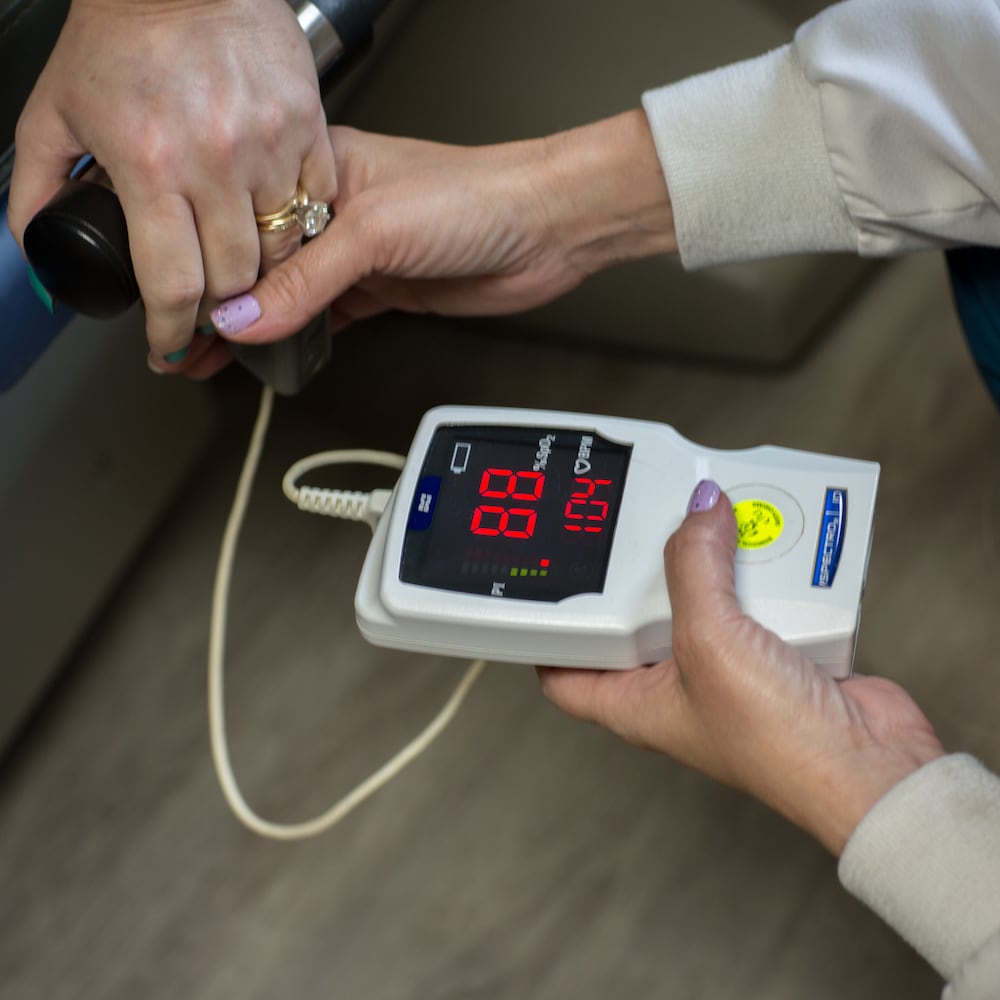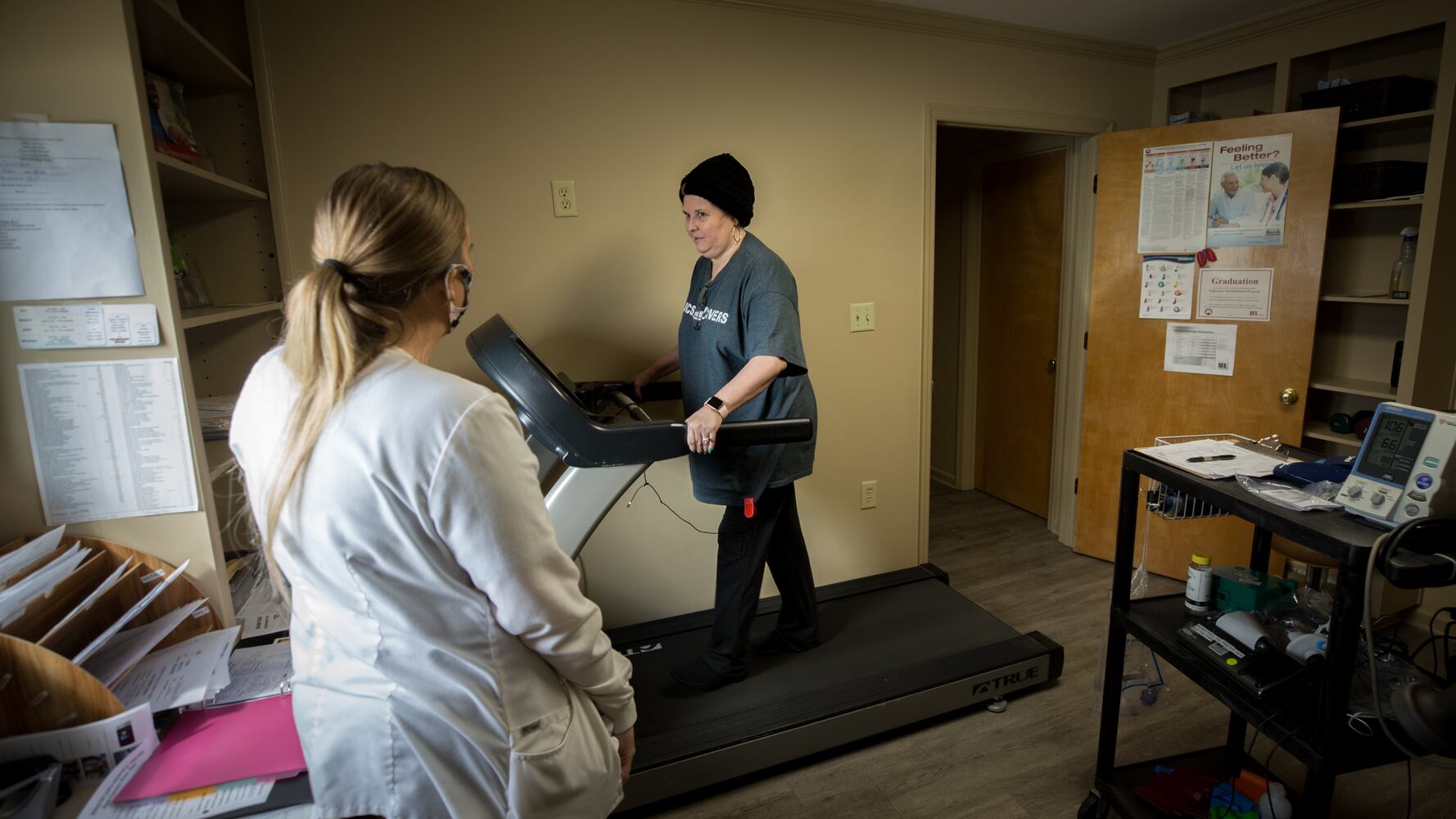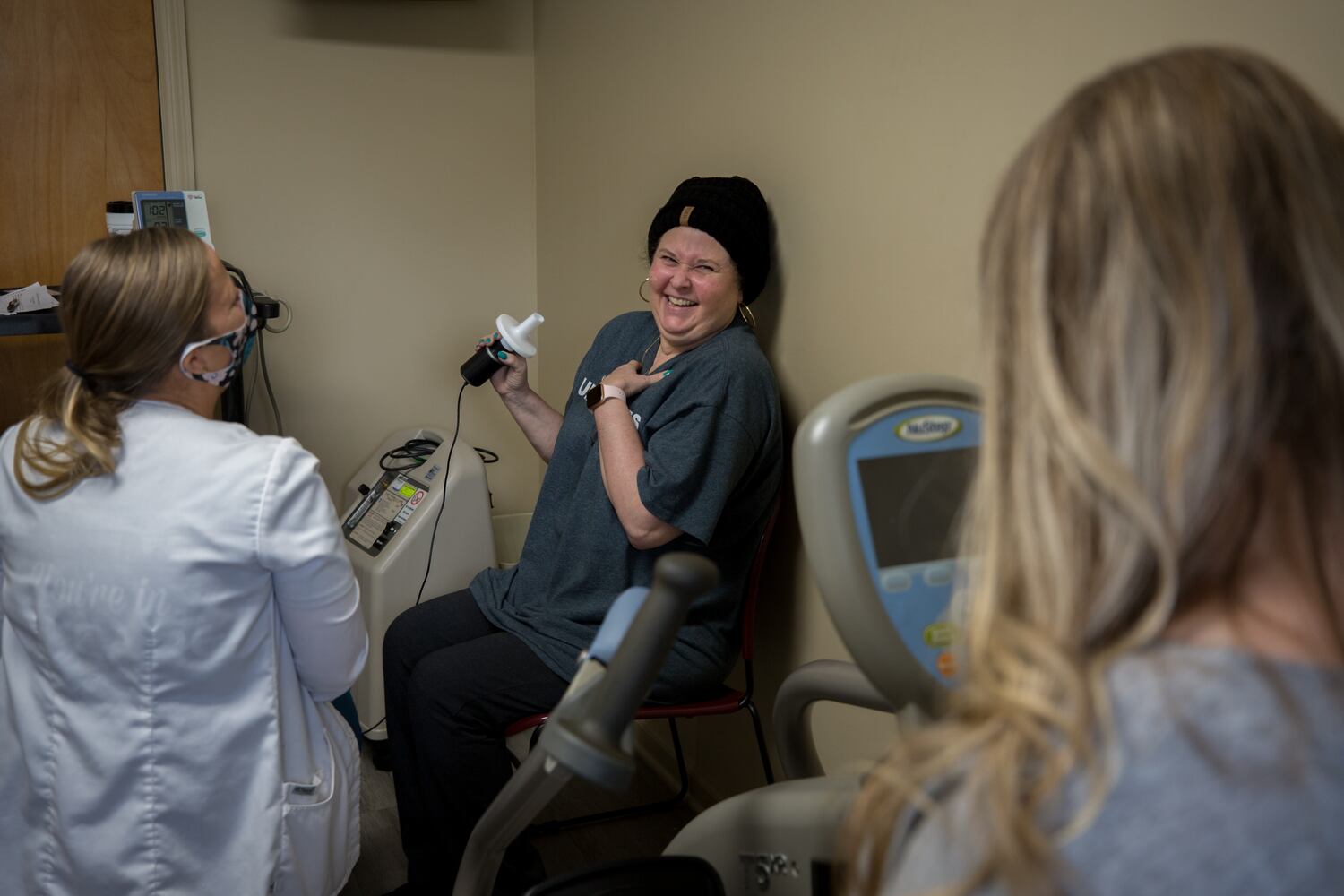BLACKSHEAR — Medics rushed to squeeze oxygen into Lisa Martin’s lungs. Her husband, Jeff, clutched her hand. He fell to his knees and wept. With his other hand, he grasped Lisa’s bare foot. And then he prayed right there on the floor at Memorial Satilla Health in Waycross.
“God, whatever you do, please don’t take her now,” Jeff pleaded.
He calls what he saw on his wife’s face that day in October the “death stare.” A former Presbyterian pastor, he had witnessed it ministering to people in their final moments, even his own mother and father. Then he saw it on the face of his wife of 29 years, his best friend, his “Shug,” the mother of their four grown children. She was comatose. Her eyes were fixed.
Lisa was losing her battle against COVID-19.
In that small South Georgia community, some of the nurses and doctors who were struggling to save Lisa’s life counted themselves among her friends. They joined Jeff in weeping for her.
Her physician told Jeff it was time. Time to call the rest of his family. Time to prepare for what would likely be the end. Time to make hard decisions.
That afternoon, Jeff and Lisa’s adult children and her brother and parents assembled in the hospital waiting room. Each was given time to speak. They knew they all loved her. They knew Lisa had written in her will that she did not want to be kept alive on a machine. They did not know if she had suffered brain damage while her oxygen levels plummeted.
After several hours, they reached a consensus: She had already been kept alive on a ventilator for 20 days. They would give her 11 more — a full month — while her doctors sought to transfer her to a bigger hospital with more resources. Meanwhile, they prayed for a miracle.
Credit: Stephen B. Morton for The Atlanta Journal Constitution
Credit: Stephen B. Morton for The Atlanta Journal Constitution
‘No one could top her’
Lisa and Jeff chased each other under the bleachers during Friday night football games at Coffee High School. They lived in the same subdivision in the county seat of Douglas. They attended the same elementary school. Lisa’s mother taught Jeff when he was in third grade.
Jeff remembers being struck by Lisa’s beauty. He admired her strong Christian faith, her gregariousness, her fearlessness. They dated in high school, attending Sunday night church events together. Jeff, who always wanted to be a father, recognized how good Lisa was with children as he watched her work as a nanny. Whenever they broke up, he would always compare his new girlfriends to Lisa.
“If I am going to keep comparing everyone to her, that’s the one,” he said of Lisa, who he nicknamed “Shug,” short for sugar. “No one could top her.”
Lisa admired Jeff’s confidence and his ability to communicate smoothly with people and charm them. She always knew he was going to be her husband.
She taught elementary and middle school students. He became a Christian minister. They moved from Douglas to Waycross and then to Fort Dodge, Iowa. He pastored a church there. Along the way, they had four kids. They moved back to their native Georgia and he started several businesses, including trailer and used car dealerships. They were thriving.
Credit: Stephen B. Morton for The Atlanta Journal Constitution
Credit: Stephen B. Morton for The Atlanta Journal Constitution
When Jeff and Lisa got sick
Lisa struggled with depression last year as Jeff worked long hours. Their kids had grown up and moved away. At 49, she told her family she did not want to live into her 80s and wind up alone in a nursing home.
She completed her will, specifying that she did not want to be resuscitated and kept on life support. She took that step after her father-in-law died of pancreatic cancer. At the time, she was experiencing her own cancer scare, which led to a hysterectomy. The following month, her mammogram detected a worrisome mass. She said she would not fight it if it were cancerous, insisting: “I am going.” It turned out to be benign. Still, she told Jeff no one would care if she died. At times, she thought about “taking a bottle of pills.”
Jeff doesn’t know how they contracted COVID-19, though he admits he was dismissive about the disease early on. He didn’t wear a mask and continued to see his customers and shake their hands. He knew people who got sick with COVID-19 but who were well again after just a few days.
“I said, ‘Lisa, it is just a bad cold. All this hype — they are trying to scare you to death,’” he remembers telling his wife, who was much more careful about wearing a mask and washing her hands.
In September, he tested positive for COVID-19. Lisa initially tested negative, though she had classic symptoms of the disease and would later test positive for it at the hospital. She burned up with a 103-degree fever, felt fatigued, endured chills, coughed and struggled to breathe. At one point, she desperately beat on the wall of their shower stall to get Jeff’s help. Her lungs hurt.
One morning, Jeff saw her face had turned as red as a beet. He rushed her to the hospital in Waycross. As the medics wheeled her in, she pictured Jesus’ crucifixion, thinking: “Jesus, if I die, I want to live with you. You are my savior and I love you.”
Though it contradicted her new will, she told the hospital workers to put her on a ventilator. Lisa later could not explain her change of heart other than to attribute it to divine intervention.
As they parted, Jeff told Lisa he loved her. Drained from his own fight with COVID-19, he climbed back into his car, drove across the street, parked and then fell into a deep sleep. When he woke, he called the hospital to check on Lisa. He learned she would not be coming home.
Credit: Stephen B. Morton for The Atlanta Journal Constitution
Credit: Stephen B. Morton for The Atlanta Journal Constitution
‘Holy smokes!’
Lisa’s doctors and nurses rescued her that day in October, when her oxygen levels fell steeply and as her family debated whether to keep her on life support. She was young and healthy, so they were mystified by her struggle with COVID-19. In all, she was kept on ventilators for 59 of the nearly 100 days she was hospitalized. At one point, Lisa survived a stroke.
While heavily sedated, she suffered from elaborate nightmares and hallucinations. She dreamed she was paralyzed, that her son had been killed in a bus accident, that one of her daughters had died, and that her house had been converted into a nursing home run by cruel people. In her visions, a clock ran backward as she constantly relived this trauma. Lisa kept telling herself to snap out of it so she could save her family.
Eventually, she was transported to Memorial Health University Medical Center in Savannah. On Oct. 27, a nurse noticed Lisa was following Jeff around the room with her eyes. To be certain, Jeff walked around her bed. Her eyes followed. She had broken through.
“Holy smokes!” Jeff exclaimed. “She is alert.”
He bent down to face her.
“Lisa, can you hear me?” he asked, hopefully.
She nodded.
“Are you in pain?”
She shook her head.
Elated, Jeff began to cry. He asked her if she was glad to be alive. She indicated she was not, thinking her nightmares were real. Her anxiety melted into relief when she realized she was mistaken.
She could not yet speak and was partially paralyzed. But within days, Lisa was mouthing responses to Jeff’s questions: Do you want to listen to music? Do you want me to turn on the TV? Can I hold your hand? Do you want me to shut up?
In November, as Jeff was updating friends and family on Facebook about Lisa’s condition, she slammed her bedrail with her hand and mouthed the words: “Put your phone away.” She repeatedly told him the same thing before she got sick, so Jeff could tell his wife was coming back. One of her nurses nicknamed her Lazarus.
In all, Lisa lost 55 pounds during her hospitalization. She missed Thanksgiving, Christmas, her son’s 19th birthday, Jeff’s 52nd birthday, Pierce County High School’s state football championship victory, and the presidential election. Last year, she spent her 29th wedding anniversary with Jeff while in rehabilitation. To celebrate, he wheeled her outside to gaze at the “Christmas star,” or when Jupiter and Saturn appeared close together in the night sky, resembling the biblical star of Bethlehem. She finally returned home on New Year’s Eve with a new and more positive perspective and a stronger faith in God.
Dr. Roberto Lopez Vega and Dr. Igor Aksenov were among the many health care workers who saved Lisa. They said her grit, the absence of organ failure, and her family’s support and strong faith helped her pull through.
“It is truly remarkable,” Lopez Vega said. “She is a symbol of hope.”
Credit: Stephen B. Morton for The Atlanta Journal Constitution
Credit: Stephen B. Morton for The Atlanta Journal Constitution
Gigi and Honey
A pair of wigs hang on Lisa’s bathroom wall. She named one of them after her respiratory therapist in Savannah, Gigi. She calls her “fun” wig Honey because of its youthful honey-colored highlights.
Lisa’s hair fell out during her hospitalization. She has several theories about why: The trauma she endured, her drastic weight loss, and the powerful medications she has been given.
Thick, long and dark brown, Lisa’s hair gave her confidence. She first noticed strands of it on her hospital pillow. Then she found piles of it on the floor. Her hair is now growing back. But other symptoms linger.
Lisa, 50, remains short of breath. She sleeps tethered to an oxygen machine. An Apple watch attached to a pink wristband keeps track of her elevated heart rate. The tops of her feet remain paralyzed. She takes a handful of multicolored pills each day.
In between attending rehabilitation appointments, Lisa shares her experience with other COVID-19 patients and their families, seeking to inspire them, give them helpful guidance and underscore the seriousness of the disease. She and Jeff call these efforts her “ministry of hope and healing.”
“I want them to see me and know that there is hope, that I am what is around the corner. All my healing can be their healing, too,” Lisa said recently as she sat with Jeff in their living room in Blackshear.
Miriam Holland of Conyers said Lisa has comforted her family and provided helpful recommendations while Holland’s 67-year-old cousin has battled COVID-19 in the hospital.
“She does anything she can to tell her story, which gives other people hope,” said Holland, who taught Lisa in high school.
Credit: Stephen B. Morton for The Atlanta Journal Constitution
Credit: Stephen B. Morton for The Atlanta Journal Constitution
Easter
Lisa and Jeff credit God, their family and her doctors and nurses for her survival. She also credits Jeff. He constantly stayed by her side, dived into scientific studies about COVID-19, consulted doctors about what to do, and made suggestions to Lisa’s physicians.
“He was my advocate. I am alive because of him,” Lisa said. “He tells me every day how much he loves me and how grateful he is that I am still alive.”
Jeff listened quietly as Lisa bragged about him, sweetly offering: “That’s my Shug.”
Last year, Lisa asked Jeff and their children to write notes about things for which they were thankful. They planned to read them on Thanksgiving. But that was before she got sick and went into the hospital.
Lisa is still so fragile that she must remain isolated and cannot attend church. So for Easter, she and her family plan to gather at their home. They have not been all together in the same room since those desperate moments back at the hospital in Waycross when she was dying, when they were faced with that terrible decision, when they refused to give up.
On Sunday, they will sit down for a big meal, maybe ham, macaroni and cheese, deviled eggs and lima beans. They will open the notes of thanksgiving they have written on pastel green, blue and yellow scraps of paper. They will celebrate being together. They will celebrate Jesus’ resurrection. They will celebrate Lisa’s resurrection.
About the Author
Keep Reading
The Latest
Featured
